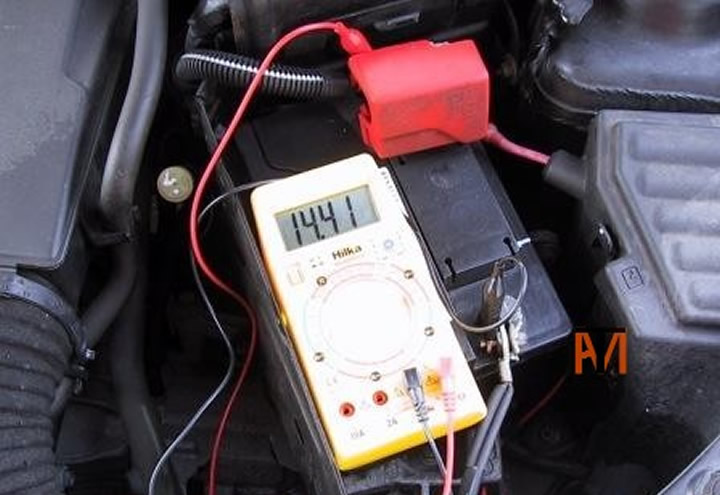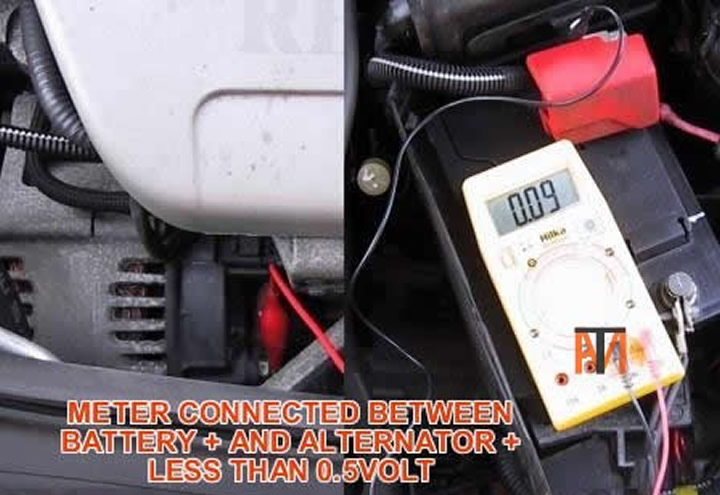clearfix
clearfix
How to Test Alternator Charging System
(Watch Video)
Clues That You May Have an Alternator Problem
Battery warning light on or glowing when driving
No battery warning light on with ignition on, engine not running
Battery warning light on with ignition turned off
Screeching when accelerating, normally means alternator belt is slipping
Jump starts ok but cuts out shortly after
Head lights dimming when driving
Radio goes off when driving
ABS, Air bag etc. warning lights on together when driving (they come on with low voltage under 12 volts)
Testing the Alternator
1. Is the battery light working? If no you need to check the wiring to the alternator, the light is normally controlled by the alternator grounding the warning light to earth (-) as a guide if you disconnect the wire you should see battery voltage at the wire with ignition on. Note: - some cars (mainly older Vauxhalls) have rubber mounted alternators, these have an earth lead from the alternator to the engine, if this breaks the light won’t work and the alternator won’t charge.
2. Check the drive belt (fan belt) is tight and in good condition. Note: - to double check the belt isn’t slipping, rev engine to 3,000rpm with the lights on, stop engine and carefully, check to see if the alternator pulley is very hot, it should be the same temperature as the rest of the alternator, if very hot the belt is slipping.
3. For the next test we need a voltmeter, connect this across the battery, start engine, turn on some load (headlights, heated rear screen etc.), with engine at about 3,000rpm you should see 13.5-14.5 volts.

4. If the voltage is less we need to volt drop the wiring under load. Connect your voltmeter between the battery positive (+) and the positive out put on the alternator, with engine at 3.000rpm and load on (headlights, heated rear screen etc.), you don’t want to see any more than 0.5volts on your meter, any more than this means you have a bad connection or wire and the alternator is trying to charge through your meter (don’t worry it won’t damage your meter). Check connections they might be hot if bad and for broken wires. You should all so volt drop the earth lead on the alternator if it is rubber mounted, check from battery negative (-) to alternator body again you don’t want to see more than 0.5volts on your meter.

5. If it passes all the above tests but does not reach 13.5-14.5volts, we now know it is time to get your credit card out and go and buy a new alternator.
6. If the voltage goes very high (18v) and the battery smells of rotten eggs, the regulator is faulty, this is normally inside the alternator and would require replacement of alternator.
Note: - Ford is now fitting ‘Smart Charge’, this allows the ECU to regulate the alternator and sometimes it may charge over 14.5volts.For testing if you disconnect the multi-plug the alternator will regulate itself. See Ford wiring problems.


